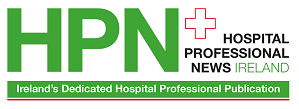‘63-Year-Old Reality Check’ Highlights the Importance of Early Action on Heart Health
Consultant Cardiologist Dr Daniel O’Hare urges midlife adults to take cardiac risk seriously as new data reveal heart issues emerging earlier than expected.
Heart disease no longer an ‘older person’s’ issue
New data from Blackrock Health reveal that the average age of patients presenting to its Rapid Cardiac Care service is just 63, a stark reminder that cardiac issues are increasingly affecting people in midlife.
Cardiovascular disease (CVD) remains the leading cause of death in Ireland, responsible for nearly 9,000 deaths annually, despite research showing that up to 80 per cent of premature cases are preventable.
In response, Blackrock Health has launched the “63-Year-Old Reality Check” campaign to raise awareness about earlier risk management and to encourage people to become “Heart Smart” from their forties onwards.
Recognising risk earlier
Dr Daniel O’Hare, Consultant Cardiologist at Blackrock Health, says heart disease is no longer confined to older patients.
“We are increasingly seeing cardiovascular risk factors and diagnoses in patients in their forties and fifties,” explains Dr O’Hare. “Stress, high blood pressure, raised cholesterol and a sedentary lifestyle can all have serious consequences if left unaddressed. Recognising the signs early and taking proactive steps can save lives.”
Common cardiac presentations include chest pain, arrhythmias and heart failure, often linked to inactivity, smoking, obesity or family history. These can also develop silently over time due to atherosclerosis, the gradual build-up of fatty deposits in the arteries.
The midlife turning point
Dr O’Hare notes that from the age of forty onwards, the long-term effects of lifestyle habits begin to surface.
“For those who are sedentary, smoke, or have an unbalanced diet, this may translate into high blood pressure, raised cholesterol or diabetes,” he says. “Many in their forties juggle demanding, stressful routines, and stress-related symptoms can sometimes disguise an underlying cardiac issue. It’s a stage of life when paying closer attention to your heart becomes essential.”
Symptoms that should never be ignored
“Many assume it’s normal to feel breathless climbing stairs or tire easily during exercise, but this is not always the case,” Dr O’Hare warns.
“Chest pain, shortness of breath, dizziness and unusual fatigue should never be dismissed as signs of ageing. These symptoms may indicate an underlying heart problem and warrant immediate medical attention.”
Early diagnosis saves lives
Dr O’Hare emphasises that early detection can change the course of a patient’s life. Identifying issues before a cardiac event allows clinicians to intervene with medication and support lifestyle changes that reduce risk and improve long-term outcomes.
Routine cardiac check-ups from age 40 are recommended, particularly for those with risk factors such as high blood pressure, high cholesterol, obesity, diabetes, smoking, sedentary lifestyle or family history.
“Never assume it’s too late to make changes,” says Dr O’Hare. “Introducing physical activity, eating a balanced diet, stopping smoking and reducing alcohol intake can have dramatic benefits — not only for test results but for overall wellbeing.”
A timely reminder
Blackrock Health’s data provide a timely reminder that cardiovascular disease can develop much earlier than many people realise.
“The earlier you are assessed, the better the outcomes,” Dr O’Hare concludes. “We want people to view cardiac health as part of their routine self-care — not just something to think about later in life.”
Fact File: Cardiovascular Health in Ireland
Cardiovascular disease (CVD) is the leading cause of death in Ireland, responsible for nearly 9,000 deaths each year.
Up to 80% of premature CVD cases are considered preventable.
The average age of patients presenting to Rapid Cardiac Care at Blackrock Health is 63.
Common cardiac presentations include chest pain, arrhythmia and heart failure.
Key risk factors include smoking, inactivity, obesity, high cholesterol, high blood pressure, diabetes and family history.
Symptoms that should never be ignored: chest pain, shortness of breath, dizziness and unexplained fatigue.

